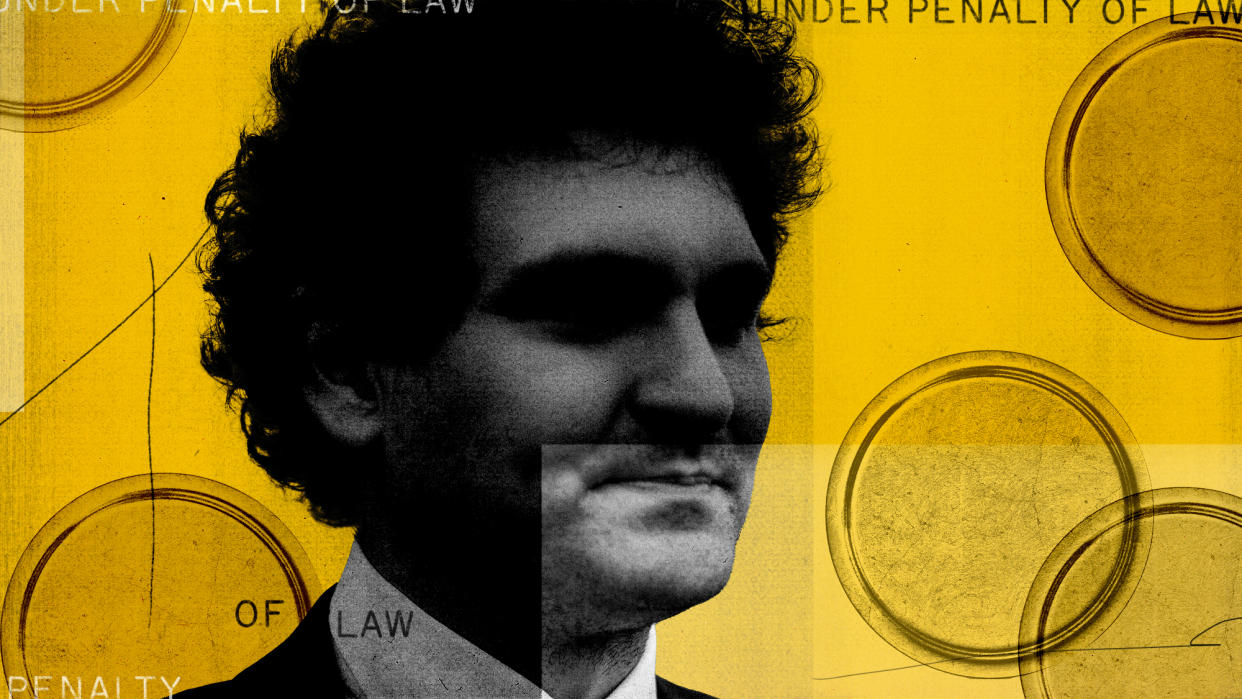Sam Bankman-Fried found guilty: where does crypto go from here?

Sam Bankman-Fried, who ran one of the world's biggest cryptocurrency exchanges, faces decades in prison after he was found guilty of fraud and money laundering.
The trial in New York of the 31-year-old "tousle-haired mogul", who founded the FTX cryptocurrency exchange, "laid bare the hubris and risk-taking across the crypto industry", said The New York Times.
The verdict "capped what prosecutors called one of the biggest financial frauds in American history", said Politico. But commentators are at odds over exactly what it means for the future of the crypto industry.
What did the papers say?
For the "broader cryptocurrency business", the conviction "could provide a long-awaited chance to move forward", said Reuters.
For some in the sector, Bankman-Fried's conviction on seven counts of fraud and conspiracy "points to the end of an era of risky and wrongful practices", and "a more regulated future", said Bloomberg.
But others outside the industry are "taking a much tougher line", arguing that the verdict "confirms crypto as a sector riven with weaknesses that attract criminals, hackers and rogue states".
Bankman-Fried, who was arrested last year after his firm, FTX, went bankrupt, has "done irrevocable damage to this industry", said Sky News, "reinforcing the narrative of a Wild West where consumers have no protection". So it will "take years for the crypto world to rehabilitate its image, if it ever does at all", added the broadcaster.
Jordan Estes, a former prosecutor, told Wired that the US Department of Justice will consider the conviction a "signature victory" and its first high-profile crypto scalp. He was "crypto royalty", which "lends his conviction a symbolic importance".
But "despite widespread predictions of cryptocurrency's demise", there is "still a market for virtual assets", said Reuters, noting that the price of bitcoin has more than doubled this year as "large financial institutions" like BlackRock "seek to make the virtual currency more respectable".
What next?
Further legal headaches are expected for crypto. After Bankman-Fried "met his fate" with the justice system, "much of the rest of the industry is facing its own legal showdowns with the [US] government", said Politico.
"Crypto giants" like Binance, Coinbase and Gemini are "still heading for courtroom clashes" with regulators that could "prove an even greater peril to the market's future" than FTX’s collapse in 2022.
Closer to home, the UK government unveiled plans earlier this week to regulate the crypto industry in a similar way to traditional financial investments that would require all crypto companies to be authorised by the Financial Conduct Authority (FCA).
But this plan has already come under attack by a former head of the regulator, noted the Financial Times. Charles Randell, who quit as chair of the FCA last year, warned that "investors risked being harmed if crypto assets were labelled as regular investments".
We can expect some within the sector to try to position themselves as non-crypto projects, said The New York Times. Several crypto companies have "tried rebranding", it said. Autograph, an NFT start-up co-founded by former American football star Tom Brady, "quietly removed some of the crypto language from its marketing", and Paradigm Capital "erased mentions of the word 'crypto' from its website", instead describing itself as a “research-driven technology investment firm".
Meanwhile, the broader tech industry has "done what it does best: move on to the next thing", it added. Silicon Valley is "no longer fixated on crypto" and although crypto firms "may come back around in a few years", for now "they are out of style and therefore irrelevant".
As for Bankman-Fried, it is unclear whether he will appeal against the verdict. He had pleaded not guilty to all the charges, insisting that he had acted in good faith. His sentencing has been set for 28 March next year.


